
One music class. One math class.
One class for English Language Learners.
One common thread of joy in teaching.
One hour at Culler Middle School.
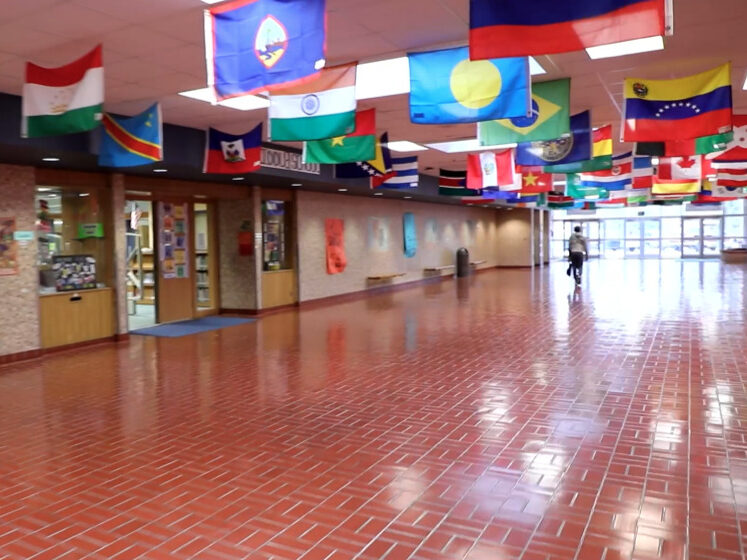
Walk through the front door of Culler Middle School, through the main office and straight down the hallway. Take a right and you walk under dozens of flags from various countries hanging from the ceiling. This year Culler has families from 34 countries. The flags represent the school’s pride in the diversity of its students and families.
Walk past the library on your left, hang a right and take another left down a few stairs and you arrive at teacher Teresa Ghormley’s orchestra class. There are 15 students, a combination of 7th- and 8th-graders, playing violin, cello and bass.
You hear the familiar, hypnotic refrain of a music teacher counting the rhythm as her students practice a song for their upcoming December concert. They sight read their concert pieces the previous week and now are rehearsing and identifying patterns and repetition.
I love watching the kids progress. The growth in middle school is incredible in every area. They come to me with basic skills, and they leave me ready to be high school players
Teresa Ghormley — 7th & 8th Grade Orchestra Teacher
“One, two, count line eight, one, two and four.”
“One, two, readyyyy play.”
“One, two, three, four, five, six.”
But as often as you hear her counting, you also hear Ghormley say something else quite a bit – “beautiful.”
“Beautiful! Your bowing is perfectly together, way to go!”
“Oh that sounded beautiful!”
“Beautiful – that was very nice!!”
Ghormley constantly offers positive reinforcement to her students. She brims with energy.
“I love watching the kids progress. The growth in middle school is incredible in every area. They come to me with basic skills, and they leave me ready to be high school players,” said Ghormley, now in her fifth year at Culler after teaching in Columbus, Neb., for seven years. “They come as kids, they leave as young adults. Watching them grow as musicians, come into their personalities, take chances and try new things – those are the perks of teaching middle school. Plus, they’re pretty goofy so we get along well.”

“I love watching them find their place. Whether it’s hanging out in the room before school, coming to practice with their friends during recess or trying out drama club and discovering like-minded people who accept them and all their quirks”
Growing up in Hastings, Neb., Ghormley was part of a musical family and played multiple instruments as a young child – piano, guitar, violin. When she started high school she saw how much fun her friends were having in marching band so she learned the trombone and joined. After that she was recruited to play bass guitar for the jazz band and double bass for orchestra.
“Mr. Shade was the band director who took a chance on me and gave me my first trombone lessons when I was 15 years old,” she said. “He was passionate about excellence in performance, but also in being excellent human beings. I used to babysit his kids and so I saw that he was the same caring person both on the podium and off. I wanted to be like him and give other students the same chance to belong that I found in the band room. I practically lived in the band room in high school.”
This early sense of belonging inspires Ghormley to instill that same feeling among her students. She loves teaching at Culler – “the diversity of my students has widened my perspective and given me an appreciation for other cultures, traditions and challenges I had never considered before” – and she loves watching her students grow, both as musicians and people.
“In addition to watching them grow, I love watching them find their place. Whether it’s hanging out in the room before school, coming to practice with their friends during recess or trying out drama club and discovering like-minded people who accept them and all their quirks – watching kids find their place to belong brings me joy.”
At the end of class, a student named Jolie stays after for a few minutes to practice a song on the piano with the student teacher, Abby Muraski. The song is “Lost Woods” from “The Legend of Zelda.” As Jolie bangs out the song, a huge smile crosses both their faces.
Nearby, Ghormley also smiles. Joy.
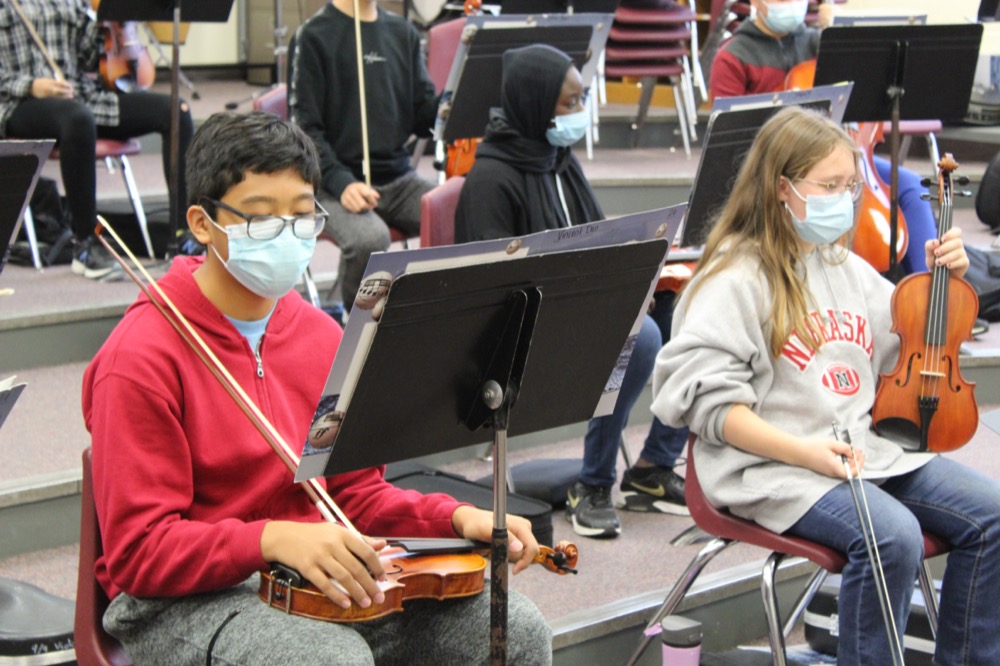
After waiting for the excitement of passing time to end – it’s best you do – walk back up those stairs from the music room, take a right and then a left under the flags. Straight down this hallway you’ll find Danielle Roby’s math classroom, which is filled with 17 sixth-graders. And like Ghormley’s classroom, it’s filled with positive energy.
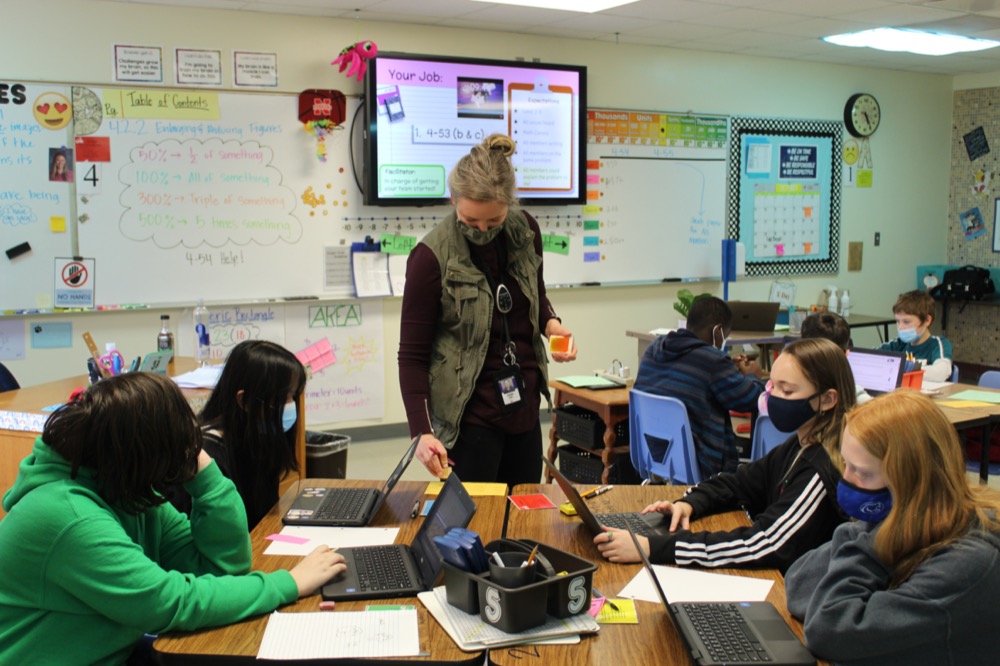
They’re piloting a new math curriculum, which is team- and student-centered. Students are assigned to teams and each student has questions and tasks they’re responsible for to keep the team moving forward.
“I love the power of students being in charge of their own learning because a lot of times they come up with ways of solving problems that adults might not think of,” said Roby, now in her 10th year of teaching and fifth at Culler. “Think of it as we are pulling information out of their brains instead of pushing information into their brains.”
Here are the principles that drive their daily lessons
Although she teaches math, it was a Spanish teacher she had growing up in Lincoln – Señor Pierce – who inspired Roby to become a teacher. “He was so caring, likeable and made you love the Spanish language.”
Much like her former Spanish teacher, Roby clearly cares for her students, loves teaching and strives to instill a passion for math. During class she’s constantly on the move, hopping from table to table and offering positive feedback.
“You guys are having really good math conversations – keep it up!”
“That’s perfect – great job!”
“You boys are killing it at the math conversations over here – nice job!”
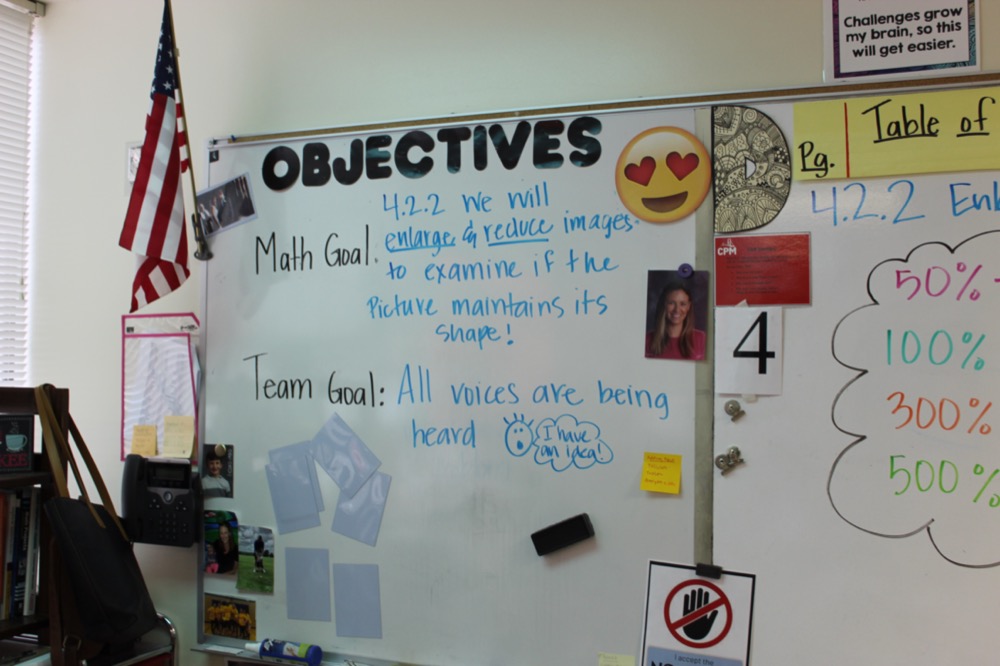
I love the power of students being in charge of their own learning because a lot of times they come up with ways of solving problems that adults might not think of.
Danielle Roby — Culler Math Teacher
Just like Ghormley, Roby loves being part of the Culler community. She loves the connections she makes with her students – but it’s more than that.
“I am also passionate about creating equity within instruction and giving all students a voice. All students are mathematicians in their own ways and have great ideas, so creating a safe environment for them to share their thoughts excites me. If there isn’t a safe, positive environment or if there aren’t relationships built, learning becomes difficult.”

And like other teachers, Roby lives for those stories of student growth. Those stories that remind her why she’s a teacher.
“At the beginning of last year there was a student in my math class who did not identify himself as a mathematician, but over the course of a year, I worked with him one on one to build his confidence to be able to share his thinking with his teammates. We had a parent meeting and I can confidently say that he did eventually identify himself as a mathematician.”
That, Roby said, brought her joy.
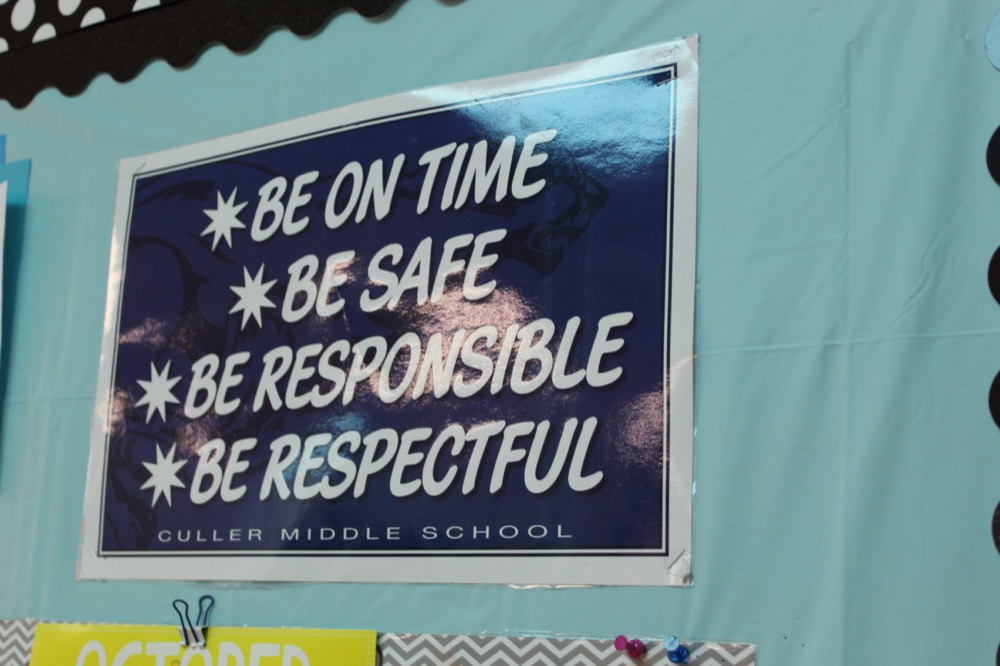
Leaving Roby’s classroom, take a right and then another right down the stairs. Then stand outside Amanda Rodell’s classroom for a minute and you’re likely to hear – probably multiple times – her laughing with delight as she works with students.
This particular class is a mix of 6th-, 7th- and 8th-grade Level 1 ELL students, those who are just starting to learn English and have very limited reading, writing, speaking and listening skills. These students come from all over the world – Ukraine, Guatemala, Mexico, Honduras, Vietnam.
“I love teaching Level 1 students who have no idea about our culture or language and watching them blossom into language learners who can speak, read and write in English,” said Rodell, who has been with Lincoln Public Schools for 24 years, the last six at Culler. “And I love working at a Title 1 school. The teachers and administration are beyond supportive and the kids and parents are grateful for us as teachers.”
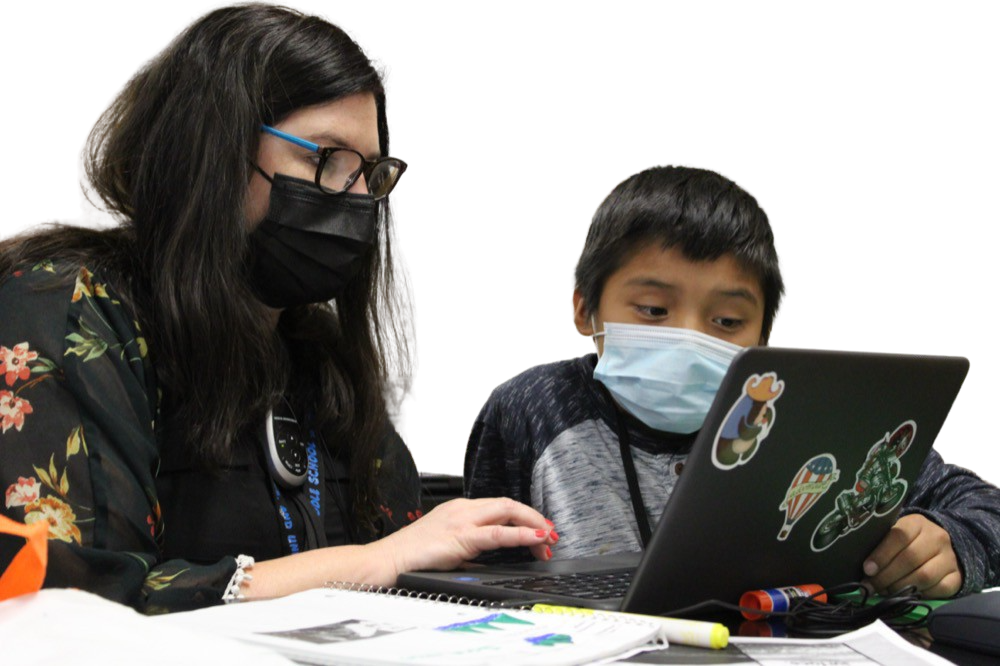
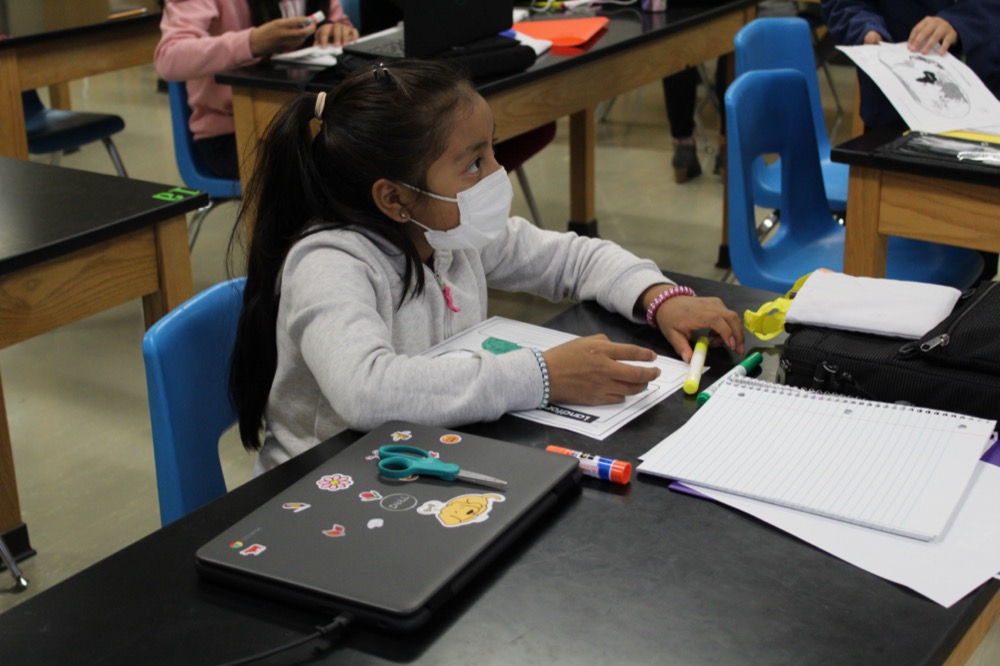
But the moment that ELL student walks into my reading intervention room, I know exactly how they feel when after years of learning English they still struggle with phonics. The best part of my job is that smile on a student’s face when they finally understand.
Amanda Rodell — Culler ELL Teacher

Being in a classroom wasn’t always so enjoyable for her. Growing up in New Castle, Pa., she had to repeat the first grade. She struggled with reading and only later in life learned she was dyslexic – something that wasn’t commonly diagnosed in the early 1980s. She still draws inspiration from the teacher who helped her through this time – Mrs. Rob, who would stay after school and offer Rodell extra tutoring.
She candidly admits she still doesn’t really enjoy reading.
“But the moment that ELL student walks into my reading intervention room, I know exactly how they feel when after years of learning English they still struggle with phonics. The best part of my job is that smile on a student’s face when they finally understand.”
On this particular day, they’re in the middle of their landforms/astronomy unit and reviewing vocabulary words. She shows photos of various landforms and then asks them to say aloud what they are.
Her students are crushing it – and she lets them know it.
“These are…? Mountains, yes!”
“Okay, this is a…what? Island! Yes, fantastic!”
“Rivers – good job!”
“Valleys – I love it, great job!”
“Yes, a canyon – fantastic, love it!
“Fantastic, guys, I love it.”
“I love it, you guys.”

Daily victories like these can lead to life-changing victories later in life for these students. Rodell remembers one story in particular about a student whose life was changed in her classroom.
“During my first year at Culler six years ago there was a girl who cried outside my door and was scared to even come to school. She had no English and was in 6th grade. She is now a senior in high school and has learned so much English. We have remained in contact and I am her number one fan. I am so proud of how much she and her family have accomplished in these past six years.”
As you leave room 101 and start back down the hallway, you can hear what pride sounds like. There’s that laugh again.
Joy.
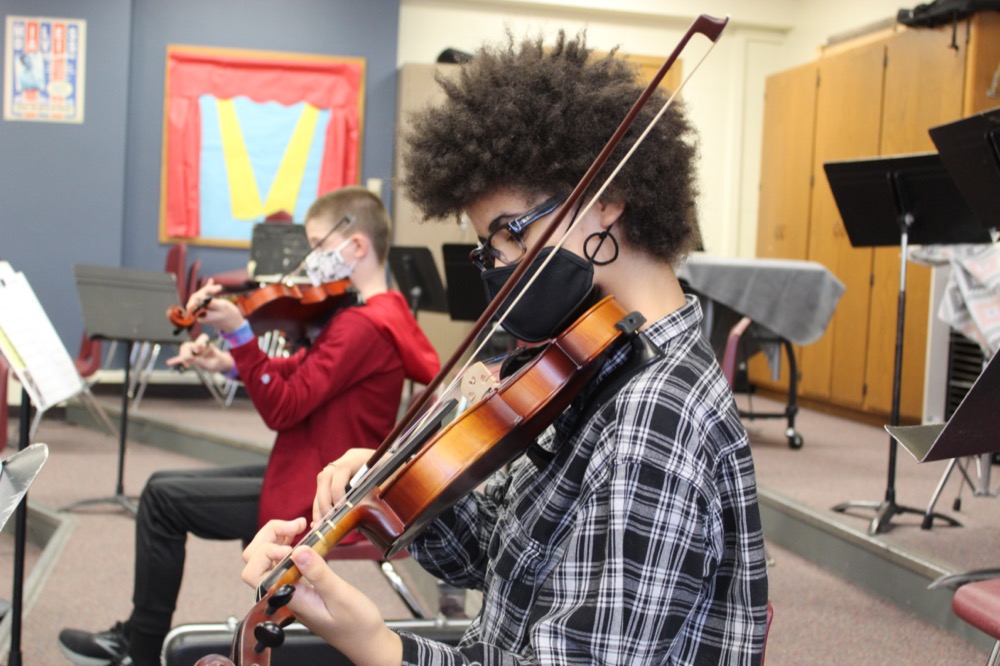


Lincoln Public Schools is the second largest public school district in Nebraska, located in the heart of the plains, renowned for its long-standing legacy of educational excellence and tradition of rigorous academic achievement. The school district is growing and thriving, serving over 42,000 students in more than 60 schools and programs.
Lincoln Public Schools is committed to ensuring digital accessibility for all persons, including people with disabilities. Learn more